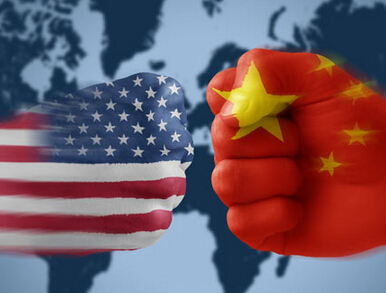(单词翻译:单击)
HONG KONG — For months, foreign companies in China have been quietly enduring increased scrutiny from Chinese government antitrust enforcers, issuing only occasional terse statements as they have been increasingly targeted by surprise raids on their offices, protracted investigations of their operations and escalating fines.
香港——数月来,在华经营的外国公司一直默默承受着中国政府反垄断机构日益加强的压力。在执法人员突袭办公室、公司经营受到漫长的调查、被处以高额罚款的情况日益增多的情况下,才偶尔发表简短的声明。

Now, tentatively but together, they appear to be pushing back.
如今,它们似乎在尝试携手进行抗争。
On Wednesday, the U.S.-China Business Council, a group that lobbies on behalf of about 220 large American companies with operations in China, issued a report taking direct aim at China’s recent enthusiastic application of its six-year-old antimonopoly law and highlighting ways that it says enforcement could be improved.
周三,美中贸易全国委员会(US-China Business Council)发布报告,直指中国最近频繁运用已经颁布六年的反垄断法的做法,并强调了一些执法方式有待改善的情况。这个总部位于华盛顿的游说团体代表着大约220家在华经营的大型美国公司。
“For American businesses operating in China, China’s A.M.L. regime is creating more questions than answers,” John Frisbie, the president of the Washington-based council, said in a news release, referring to the antimonopoly law. “Will China use the A.M.L. to protect its domestic industry rather than promote fair competition? Is the Chinese government using the A.M.L. to force lower prices, rather than letting the ‘market play the decisive role’ as enshrined in China’s new economic reform program?”
“对于在华经营的美国公司来说,中国的反垄断法制造的问题,比解决的问题还多,”该委员会主席傅强恩(John Frisbie)在新闻稿中说。“中国是否会利用反垄断法保护国内产业,而不是促进公平竞争?中国政府是否会利用反垄断法迫使企业降价,而不是像中国新的经济改革方案所推崇的那样,让‘市场发挥决定性作用’?”
“The answers are not fully determined yet, but in at least some cases so far,” Mr. Frisbie said, the council “sees troubling reasons for concern.”
“现在还没有完全明确的答案。但到目前为止,至少在某些案例中,”傅强恩说,该委员会“看到了一些令人不安的予以关注的理由”。
China’s antitrust clampdown has already taken aim at scores of companies, both foreign and domestic, including recently against Microsoft, Qualcomm, Daimler, Volkswagen and a dozen Japanese manufacturers of auto parts and bearings. Actions against foreign companies tend to receive greater news media attention, but the companies themselves, which generally lack the political patronage networks that their Chinese counterparts enjoy, tend to lie low, once targeted. Experts say it is unheard-of for a foreign company to speak out against antitrust action in China, let alone to try to file an administrative appeal.
中国已经针对数十家国内外的公司开展了反垄断行动,比如最近对微软(Microsoft)、高通(Qualcomm)、戴姆勒(Daimler)、大众(Volkswagen),以及十几家日本汽车零部件和轴承生产商进行处罚。针对外国公司的行动往往会得到新闻媒体更多的关注,但这些公司本身通常缺少中国竞争对手所拥有的政治背景,一旦成为打击目标,往往会保持沉默。专家称,没听说过外国公司公开抗议中国反垄断行动的事情,更别说尝试提起行政诉讼了。
But the council’s report is only the latest distress signal from the foreign business community in China. On Tuesday, the American Chamber of Commerce in China published the results of a survey of members showing that 60 percent of the respondents felt foreign business was less welcome in China and 49 percent believed foreign firms were being singled out in recent pricing or anticorruption campaigns.
但在该委员会的报告发布之前,在华外国公司就发出过焦虑的信号。周二,中国美国商会(American Chamber of Commerce in China)发布了一份对商会成员开展的调查的结果,其中显示60%的受访者感觉外国公司在中国不那么受欢迎了,49%的受访者认为,外国公司在最近的物价或反腐败行动中受到了区别对待。
Last month, the European Chamber of Commerce in China issued a statement on recent antimonopoly enforcement actions, citing “numerous alarming anecdotal accounts from a number of sectors that administrative intimidation tactics are being used to impel companies to accept punishments and remedies without full hearings.”
上个月,中国欧盟商会(European Union Chamber of Commerce in China)就最近的反垄断调查发表声明称,“在未进行充分听证的前提下,有关部门通过带有恐吓性的行政手段迫使企业接受惩罚和治理,这类现象值得高度警惕。”
“Practices such as informing companies not to challenge the investigations, bring lawyers to hearings or involve their respective governments or chambers of commerce are contrary to best practices,” the European chamber’s statement said.
欧盟商会的声明中写道,“诸如告知企业不要对调查者提出质疑和挑战、不要在审讯环节雇佣律师或求助其政府、所属商会等行为都与最佳讼程程序背道而驰。”
The 48-page report by the U.S.-China Business Council highlights some similar worries, noting that 86 percent of the companies it surveyed expressed some concern about competition enforcement activities in China. Companies that have fallen under antitrust scrutiny in China complained about a lack of due process, unfair treatment, lengthy review periods for approving mergers and acquisitions and the lack of transparency in how rulings are reached and fines are set.
美中贸易全国委员会的报告也突显了一些类似的忧虑,这份长达48页的报告指出,86%的被调查公司对中国的竞争执法活动,表达了某种担忧。在中国遭受反垄断调查的企业所抱怨的问题包括,缺乏正当程序、受到了不公平的待遇、企业兼并经过漫长的审核才能批准、做出裁决和罚款的依据缺乏透明度。
Examples include unidentified companies’ being pressed by Chinese antitrust enforcers to admit guilt without having a chance to see or respond to the evidence against them, or even to be informed about why they are under investigation, according to the council’s report. Companies also reported being denied the chance to call their legal representatives before enforcers carried out surprise raids on their offices — a right that is generally afforded in the United States and Europe — and their lawyers’ being excluded from the protracted negotiations that can ensue.
报告中举例称,中国的反垄断执法机构要求一些不具名的企业承认违法行为,但却未曾向其展示相关证据,企业也没有机会对不利于自己的证据做出回应,甚至无法得知受到调查的理由。一些企业还称,在执法人员对其办公室进行突访前,它们没有得到联系法律顾问的机会——在美国和欧洲,企业基本上都拥有这个权利——在后续可能开展的冗长谈判中,这些企业的律师也被排除在外。
“Targeted or not, foreign companies have well-founded concerns about how investigations are conducted and decided,” said Mr. Frisbie, the council’s president. “Due process, transparency and the methodology for determining remedies and fines all need improvement.”
“无论调查中是否受到了针对,外资企业都有理由对调查活动的实施和裁定方式感到忧虑,”委员会主席傅强恩说。“正当程序、透明度,以及赔偿和罚款的裁定方法,这些都需要改善。”
So far, it is primarily foreign business lobbying groups that are sounding the alarm, although certain complaints about China’s antimonopoly law enforcement did figure in the most recent Strategic and Economic Dialogue. For that dialogue, Secretary of State John Kerry and Treasury Secretary Jacob J. Lew of the United States traveled to Beijing in July for annual bilateral talks with China’s state councilor, Yang Jiechi, and vice premier, Wang Yang.
迄今为止,发出警报的主要是一些外资企业的游说团体,不过在不久前的战略与经济对话(Strategic and Economic Dialogue)中,对中国反垄断执法的某些不满也的确表达了出来。在今年7月的对话期间,美国国务卿约翰·克里(John Kerry)和财政部长雅各布·J·卢(Jacob J. Lew)来到北京,与中国国务委员杨洁篪和副总理汪洋举行了一年一度的双边会谈。
“The objective of competition policy is to promote consumer welfare and economic efficiency rather than promote individual competitors or industries, and that enforcement of their respective competition laws should be fair, objective, transparent, and nondiscriminatory,” the two sides said in a news release after the talks.
双方在会谈后的新闻稿中称,“竞争政策的目标是为提高消费者福利和经济效率,而不是为促进个别竞争者或个别产业,执行双方各自的相关竞争法律应当公平、客观、透明和非歧视。”
If China’s antitrust actions are giving Western companies a chill, it comes against the backdrop of an already frosty investment environment.
如果说中国的反垄断行动让西方企业感受到了寒意,它所折射出的,则是中国早已冷若冰霜的投资环境。
Foreign direct investment into mainland China fell 17 percent in July compared with a year earlier, and fell 0.4 percent, to $71.1 billion, in the first seven months of the year. The figures, which exclude the financial sector, showed investment from Japan was down 45.4 percent in the first seven months, while American investment fell 17.4 percent and European investment fell 17.5 percent.
中国大陆吸引的外来直接投资7月份同比下降了17%,今年前七个月为711亿美元,下降了0.4%。剔除了金融行业的数据显示,来自日本的投资今年前七个月减少了45.4%,与此同时,来自美国的投资减少了17.4%,欧洲投资减少了17.5%。
China’s slowing economic growth and rising labor and other operating costs no doubt weighed on investment flows. But the country’s antitrust actions are unlikely to help improve the situation.
中国经济增速不断放缓,劳动力成本和其他经营成本的不断提高,毫无疑问对外国投资产生了影响。不过,中国的反垄断行动对于改善这种状况不会有帮助。
In announcing the investment figures last month, Shen Danyang, a spokesman for China’s Ministry of Commerce, was quick to reject any connection between declining investment and the energetic enforcement of the antimonopoly law.
上个月宣布投资数据时,中国商务部发言人沈丹阳坚决否认,外国投资的减少与反垄断法的大力实施存在任何关联。
“Groundless speculation is completely unnecessary,” Mr. Shen said, according to Xinhua, the official news agency. Investment flows may fluctuate as China readjusts its economy, he said, “but such fluctuations are not evidence for changing trends.”
据官方通讯社新华社报道,沈丹阳说,“这些仅仅是猜测,没有任何依据。”他说,在中国加大经济结构调整的过程中,吸收外资的数据有一些波动是正常的,“不足以反映整体的走势”。


